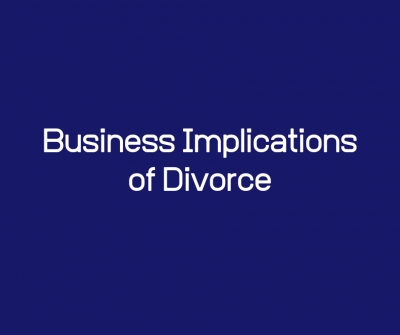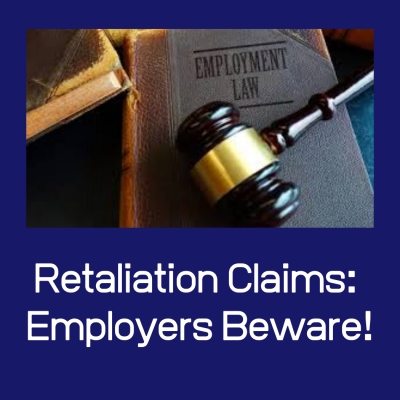AMM Blog
Welcome to the AMM Law Blog, a tool to help you keep up to date on current legal developments over the broad spectrum of our practice areas. We welcome your comments and suggestions to create a dynamic forum that will be of interest to readers and participants.
Supreme Court Expands Title VII Protections to Prohibit Discrimination on the Basis of Sexual Orientation and Gender Identification
Written by Patricia Collins Friday, June 19 2020 16:57Reprinted with permission from the June 19th edition of The Legal Intelligencer. (c) 2020 ALM Media Properties. Further duplication without permission is prohibited.
The Supreme Court of the United States held in Bostock v. Clayton County, Georgia, 590 U.S. ___ (US 2020) that Title VII’s prohibition against discrimination on the basis of sex also bars discrimination on the basis of sexual orientation and gender identity. The Court’s opinion relies on the text of the statute, rejecting arguments from employers regarding the failure to specifically include gender identity or sexual orientation in the statue. The Supreme Court’s decision in Bostock is historic – it expands the protections of Title VII to sexual orientation and gender identity, protections previously denied. The Court’s ruling requires employers to update and modernize their policies and procedures, hiring practices, training and workplace culture.
When a business owner gets divorced, the business is often the major asset subject to distribution. Accordingly, the business and its’ ongoing operations are almost always implicated in the divorce. In most cases that I see, the business is a small business with one owner or a few owners. In the best case scenario, the business owners have planned in advance for situations that arise in a divorce through a Shareholders Agreement, Prenuptial Agreements and/or Postnuptial Agreements. Hopefully, the parties’ respective family law and business law attorneys can work together to best protect the business owner to ensure as smooth a transition as possible. Hopefully, the relevant agreements have set forth a valuation formula which can be upheld at law for purposes of the divorce. Counsel can also work together to insure that income is clearly defined and reported so that support is less contentious. Additionally, advance planning can be used to address the below issues so that a divorce does not mean the end to the business. While advance planning is not a guarantee, it will provide additional protections to the business owner.
A divorce can impact internal and external business relationships, support (between spouses and child support), equitable distribution (division of marital property) and business control. In terms of business relationships, banking relationships can come into play, especially if the spouse is a personal guarantee of the loan. It is often not easy or possible to have the spouse removed from the guarantee. The spouse may also have a role in the business and it may not be feasible for them to remain involved. For example, in cases where the spouse is client facing, a delicate balance will be necessary to transition the spouse out of the business without negatively impacting the business. This can be a challenge if the divorce is acrimonious. Finally, the roles of the parties within the business may create sustainability issues going forward. In some cases, one spouse has a particular talent (i.e. software development, marketing creativity or scientific knowledge) which cannot be easily replaced and without which the business may not be able to survive. Such issues impact valuation but also succession and strategy on distribution of assets.
As for support, when a business owner is a party to a support action, whether for support for a spouse or for a child, calculating income can be challenging. The definition of income for purposes of determining support is very broad and is not the same as taxable income. There can be practical issues in obtaining information and documents which reflect the income. Legal issues can also arise, such as whether income is being reported or if the court can compel income or retained earnings to be distributed from the business to the owner to pay support.
In equitable distribution, the business must be valued so that division of the assets can occur. Business control also comes into play. It is unusual for parties to retain joint ownership or for the non-business owner spouse to receive shares of the business so creativity and/or structured payments are often necessary unless there is enough cash reserved for an outright payment. The payout can cause a financial strain for the business.
To best protect a business in the event of a divorce of the business owner, it is advisable for business owners to have advance planning through the mechanisms listed above. While not a guarantee, it will place the business owner spouse in a much better position than ignoring these issues all together.
From a Litigator's Desk: Sometimes the best thing to do is… nothing.
Written by Thomas P. Donnelly Friday, February 28 2020 16:10It’s the hardest advice to give; do nothing. As lawyers, we envision ourselves as problem solvers. It’s our job to take on a client’s problem, real or perceived, and seek to find a solution. We listen, we evaluate, we plan. We apply our knowledge of the law, our experience and our judgment to develop a strategy to best address our clients’ concerns and maximize potential outcomes. We are often type “A” personalities. We are drawn to action.
So it makes sense that the hardest advice for a lawyer to give is to do nothing; to maintain the status quo, to grin and bear it, to forego that argument or claim. Sometimes, however, to do nothing is exactly what a situation requires.
For example, consider the small business with two equal owners both of whom are “involved” but to differing degrees. Each invariably believes the success of the business is primarily the result of their effort as opposed to the efforts of their co-owner. Should they separate? Dissolve the business? Sometimes the answer is certainly yes, but just as often the answer is no. The cost of the dispute, not only in terms of money spent but also revenue and opportunity lost, must be considered. It may even be that the co-owners’ combined respective skills are what drove the success of the business and that combination may be lost forever. Business factors such as proprietary trade secrets or exclusive trade agreements may render separation for value impossible. There is rarely a quick resolution to a business control dispute.
Similarly, when considering litigation, a party must consider whether litigation is actually in their best interest and not an emotional reaction. Whether claimant or defendant, the economics of litigation, success or failure, must be considered. Sometimes, however, the litigation economics form only part of the story. A business owner must also consider the business management distraction that litigation may cause, disharmony or disunity in the work force as employees and management personnel take up sides, or even the impact on customers and clients. A further concern is the question of how that portion of the public which becomes aware of the dispute - or even which must become aware of that dispute for business reasons – might perceive the respective positions of the parties. In some cases, litigation may force clients and customers to become concerned for their own business, thus creating significant stress on the relationship.
Tax reporting obligations are another area ripe with conflict. Often times an analysis of a business control dispute or damages evaluation in litigation will involve analysis of financial and tax reporting. A party must consider whether tax and financial reporting is consistent and that the facts as reported substantiate the position espoused by the party. In the litigation process, we often encounter all manner of tax financial recordkeeping and reporting issues; inaccurately reported income, misdirected payments, mischaracterized expenses and inventory value manipulation just to name a few. The parties to any dispute must consider the implications of public disclosure and avoid “taxicide”.
Many business relationships disintegrate to the point where continued co-existence is untenable and intolerable. In many cases, there are legal mechanisms that can be brought to bear to induce a change. A business owner is wise to consult with experienced professionals so as to evaluate the broad ranging ramifications of a particular strategy before embarking on what could be a dangerous or damaging path. Sometimes it is best to do…nothing.
Most employers these days are aware of the many workplace claims an employee might bring, including allegations of discrimination on account of race, color, religion, sex, national origin, sexual orientation, pay, age, or disability. Among other claims are those brought under the Fair Labor Standards Act (minimum wage, overtime) and the Family Medical Leave Act.
Employers paradoxically seem less aware of a retaliation claim an employee may bring. Paradoxically, because as reported by the Equal Employment Opportunity Commission (“EEOC”-the federal agency responsible for enforcing laws prohibiting employment discrimination), retaliation claims constituted the highest percentage of all charges filed in its fiscal year 2019.
Moreover, as discussed below, retaliation claims, by which an employee can obtain the same remedies as discrimination claims, are often easier for an employee to prove.
A recent opinion by the United States Court of Appeals for the Third Circuit (covering Pennsylvania) illustrates what an employee must do to state a case for retaliation and how an employer might defend the action.
Medical Marijuana and Child Custody Cases in Pennsylvania
Written by Mariam Ibrahim Wednesday, January 29 2020 21:01In Pennsylvania, the paramount concern in a child custody proceeding is the best interest of the child. In determining the best interest of the child, courts engage in a comprehensive analysis of the factors outlined in 23 Pa.C.S.A. § 5328. Pennsylvania Health and Safety Statute §10231.2013 states that the use of medical marijuana in accordance with state laws is not a consideration by itself in a custody case. The custody laws have not been amended to address the issue or make similar limitations regarding the use of medical marijuana by a parent.
On December 18, 2019, however, the Superior Court of Pennsylvania issued an opinion affirming an April 5, 2019 Schuylkill County Court of Common Pleas decision limiting self-represented Father’s contact with son, age 10, to periods of supervised physical custody. The case involves a child born in May of 2009 to Mother and Father, both who have struggled with substance abuse. The court noted that Father’s recreational use of marijuana has been a recurring issue throughout the custody litigation. Father obtained a medical marijuana license when the parties were living in Georgia. At the time of the hearing, the child’s maternal grandparents had primary physical custody of the child. The trial court had awarded maternal grandparents primary physical custody of the child adding a provision that conditionally extinguished Father’s supervised custodial time “upon Father’s willingness to demonstrate sobriety and continued abstinence.”
Father argued that in light of his license to use medical marijuana as a mechanism to manage his wrist pain, the trial court should not weigh the fact of his medical use against him. The trial court rejected Father’s argument and reinstated the prior custody arrangement and the hair-follicle-testing condition. The trial court reasoned that it is unknown to the Court what effect, if any, Father’s alleged medical condition and use of marijuana, whether prescribed or used recreationally, may have on his ability to care for a child. Father appealed, and the Pennsylvania Superior Court affirmed the trial court’s decision.
The Superior Court noted that the Medical Marijuana Act prohibits the fact-finder from penalizing a parent simply for using medical marijuana. However, in the instant case, the trial court concluded after a consideration of all of the best-interest factors and the evidence presented, that it was not in the child’s best interests to expand Father’s supervised partial custody to unsupervised overnight custody without requiring Father to continue to submit to the previously-ordered drug screening regimen. The Medical Marijuana Act does not preclude the court from making relevant findings concerning effective marijuana use, medical or recreational, on parent’s ability to care for a child. The Superior Court noted that the fact finder should consider not only the parent’s history of drug and alcohol use, but also the parent’s mental health and physical condition that might require the parent to rely on prescribed medication to subdue that pain. The Court concluded that a parent’s history of drug and alcohol abuse, including a parent’s legal use of any substance, should be considered in determining the child’s best interest.
New Change to Pennsylvania Inheritance Tax Law Takes Effect
Written by Elaine T. Yandrisevits Thursday, January 09 2020 17:03On January 1, 2020, a new change to Pennsylvania’s Inheritance Tax Law became effective for decedents who pass away as of that date and leave assets to children under the age of twenty-one (21). Under the new law, inheritances from parents to children under the age of 21 will now be taxed at a zero percent rate, effectively passing inheritance tax-free.
Pennsylvania is one of six states that assesses an inheritance tax on the transfer of assets from a decedent to his or her heirs. Pennsylvania’s Inheritance Tax is applied to a decedent’s probate and nonprobate property, including real property based in Pennsylvania, cash accounts, IRAs, 401ks, and joint property. Out of state real property and life insurance proceeds are exempt from Pennsylvania Inheritance Tax.
The rate of Inheritance Tax depends on the relationship between the decedent and the recipient of the property. Under Pennsylvania’s prior Inheritance Tax law, transfers to all descendants, including children, stepchildren, and grandchildren, were taxed at a 4.5% rate. Now, with the new Inheritance Tax law becoming effective, transfers from a parent or stepparent to a child (including an adoptive child) or stepchild who is under the age of 21 on the date of the parent or stepparent’s death will be taxed at a zero percent rate. It is important to note that this new law only applies to transfers from a parent or stepparent to a child under the age of 21; transfers to all other descendants (including from grandparents to grandchildren under the age of 21) will continue to be taxed at the 4.5% rate.
As for other Inheritance Tax rates, they remain unchanged, so: transfers from a decedent to his or her surviving spouse are taxed at a zero percent rate, while transfers to siblings are taxed at 12%. Transfers to all other individuals are taxed at a rate of 15%. Finally, any distributions left to a charity are exempt from Pennsylvania Inheritance Tax.

























